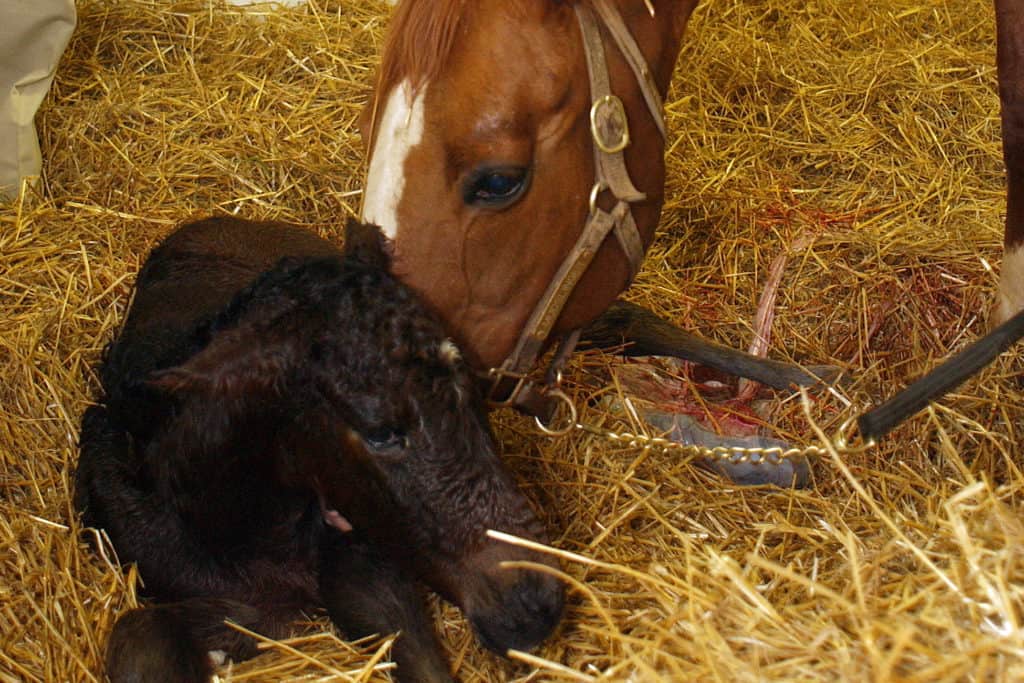
Genetic Selection for Equine Health and Performance
Understanding genetic determinants for health conditions can help us identify and manage predisposed horses.
Horse breeding from planning through foal care

Understanding genetic determinants for health conditions can help us identify and manage predisposed horses.
Topics discussed included induction of ovulation, estrus behavior, and suppression in the performance horse.

Raising a foal isn’t rocket science, but it does require some forethought and planning.

Researchers are helping horse farms control and detect equine proliferative enteropathy (EPE).
TheHorse.com’s webinar on late-term mare and foal care is now available for viewing on demand.
The events will take place Jan 20-21, 2012 at the UK Veterinary Diagnostic Laboratory.
Featured topics included equine protozoal myeloencephalitis, wobbler syndrome, and neurologic herpesvirus.
As Kentucky progresses through a near-record rainfall year, the UKVDL has observed leptospirosis abortions.

Breeders must work closely with their veterinarians, optimize mare care for her health and that of her foal, offer any help that’s needed during foaling, and provide the care the young foal needs for the best possible start in life.
Since June 2011, the program has provided notification of more than 500 equine disease reports to subscribers.
Topics covered in the webinar will include late-term mare care, foaling, and newborn/young foal care.
Learn about endometritis, what causes it, and what veterinarians can do to treat the condition.
Precise timing and specialized tools are the mainstays of successful equine insemination.
Topics include foaling emergencies, equine strangles, hind limb lameness, and diagnosing neurologic horses.
McCoy’s research investigates genetic risk factors for the development of osteochondrosis (OC).
Sydney Hughes research has been on athletic performance of Thoroughbred foals born to mares with placentitis
Stay on top of the most recent Horse Health news with
"*" indicates required fields